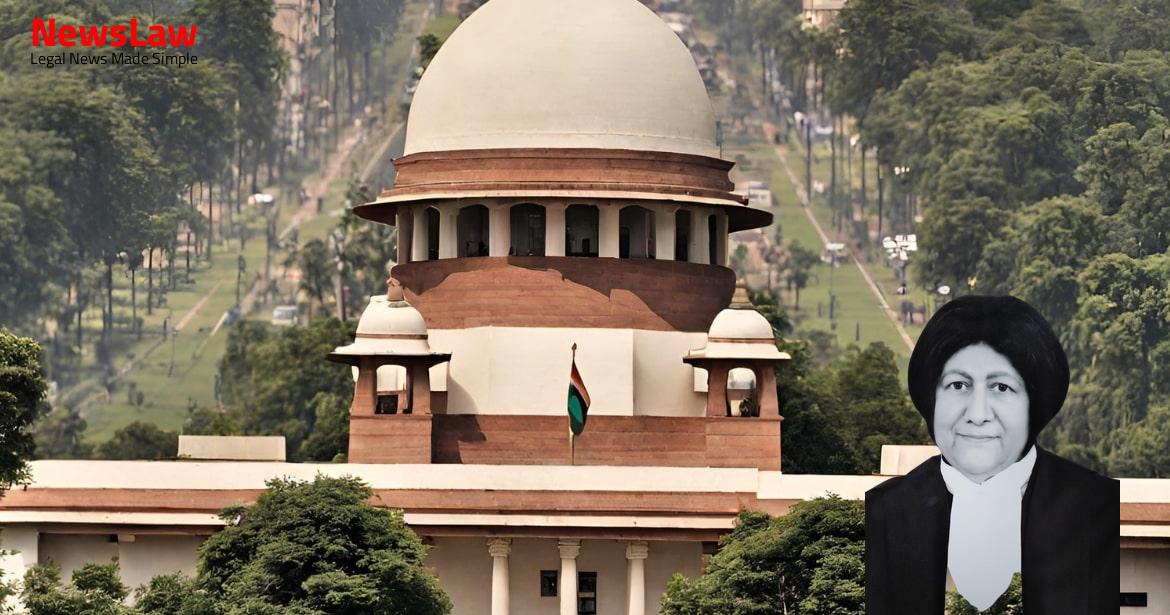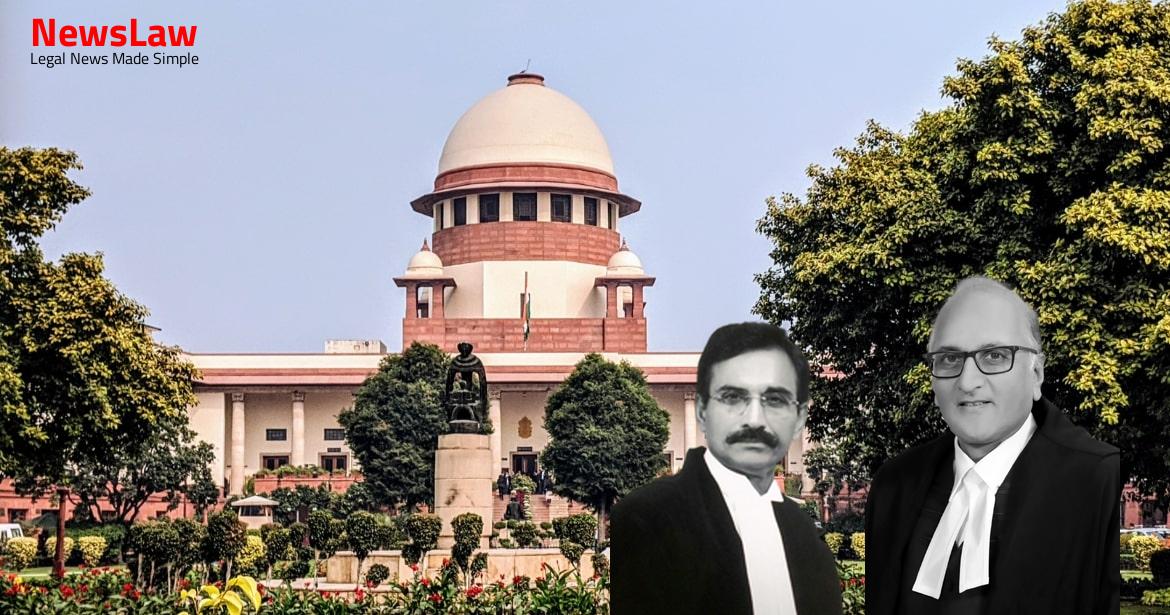In a significant legal case, the Supreme Court of India delivered a judgment regarding the validity of assessment orders post-amalgamation. The case centered around the assessment order issued in the name of a non-existent entity following an amalgamation, impacting the tax implications for the parties involved. This ruling carries implications for similar cases moving forward in the Indian legal system.
Facts
- Deputy Commissioner of Income Tax Circle 9(1) issued a detailed questionnaire to SPIL’s Principal Officer on 27 October 2014.
- MSIL informed the assessing officer about the amalgamation on 2 April 2013.
- The Draft assessment order aimed to increase the total income by Rs. 78.97 crores for international transactions regarding royalty payment.
- A scheme for amalgamation of SPIL and MSIL was approved by the High Court on 29 January 2013.
- The draft assessment order was passed in the name of Suzuki Powertrain India Limited on 11 March 2016.
- The Transfer Pricing Officer made adjustments of Rs. 78.97 crores for royalty payments by the assessee on 22 January 2016.
- The DRP issued an order in the name of MSIL on 14 October 2016 as successor in interest of the amalgamated SPIL.
- The Tribunal held that the assessment made in the name of Suzuki Powertrain India Limited for Assessment Year 2012-13 is a nullity due to amalgamation with Maruti Suzuki India Limited.
- The High Court affirmed the Tribunal’s decision based on a previous ruling for AY 2011-12 involving Maruti Suzuki.
- The High Court dismissed the appeal under Section 260A of the Income Tax Act 1961.
- A Special Leave Petition against the High Court’s decision for AY 2011-12 was dismissed by a two-judge Bench of the Supreme Court in 2018.
- The Tribunal’s decision was based on the assessment being void ab initio as it was in the name of a non-existent entity.
- The Delhi High Court affirmed the Tribunal’s decision for AY 2012-13 on 9 January 2018.
- The Special Leave Petition against this decision was also dismissed by a two-judge Bench of the Supreme Court in 2018.
Arguments
- Appellant argues that the High Court erred in quashing the final assessment order under Section 143(3) solely based on it being in the name of the amalgamating company, which did not exist, despite both company names being mentioned.
- Appellant contends that if the order was framed incorrectly, it is a curable ‘mistake, defect, or omission’ under Section 292B if it aligns with the intent and purpose of the Act.
- Appellant highlights that the amalgamating company was represented by the amalgamated company throughout the assessment and appeal proceedings.
- Respondent argues that post amalgamation, the amalgamated company ceases to exist per Section 394 of the Companies Act 1956, and thus cannot be subject to assessment proceedings.
- Respondent asserts that the initiation of assessment against a non-existent entity is void ab initio due to the jurisdictional notice being issued in the name of a dissolved entity.
- Respondent emphasizes the need for the assessment to be against the correct entity for legal validity, citing case law where assessments against non-existent entities were deemed null and void.
- Respondent maintains that no prejudice resulted from the assessment being in the name of the erstwhile company and renouncing it as a ‘mere technicality’ that does not invalidate the assessment order.
Also Read: CRPF Act: Validity of Rule 27 for Compulsory Retirement – Case of Head Constable vs. CRPF
Analysis
- Assessment orders framed in the name of an amalgamating company, which has ceased to exist, are considered void in the eyes of the law.
- Various High Courts have upheld the invalidity of assessment orders issued to non-existent entities post-amalgamation.
- The Delhi High Court’s decision in Spice Entertainment serves as a precedent for quashing assessment orders against non-existent companies.
- The doctrine of merger solidifies the legal position that judgments of the Delhi High Court are affirmed by the Supreme Court in Civil Appeals.
- Assessment orders framed against non-existent entities due to amalgamation are considered null and void.
- The High Court’s scrutiny extends to cases where assessments are completed against a company that no longer exists.
- The judgment in Skylight Hospitality LLP has been distinguished in subsequent cases by various High Courts.
- Assessments framed in the name of amalgamating companies have been consistently deemed invalid by courts.
- The principle established in Spice Entertainment has been followed by various courts leading to the quashing of assessment orders against non-existent entities.
- An assessing officer issued a notice under Section 143(2) to an amalgamating company, SPIL, which had ceased to exist, rendering the assessment proceedings void ab initio.
- The assessment order was issued against the amalgamating company despite its dissolution due to the approved scheme of amalgamation.
- An order was also passed in the name of a non-existent entity, leading to a substantive illegality rather than a procedural violation.
- The participation of the amalgamated company in assessment proceedings was held not to operate as an estoppel against law.
- Section 170 of the Income Tax Act deals with succession to business otherwise than on death, clarifying that post-amalgamation, assessment should be in the name of the amalgamated company as the successor in interest.
- Irregularities and procedural lapses, such as the issue of notices in the wrong entity’s name, were deemed curable under Section 292B of the Act.
- Consistency and certainty in tax matters are crucial for individual affairs and business decisions.
- The Court’s view for AY 2011-12 should be applied to the present appeal for AY 2012-13 to maintain consistency.
- Promoting the interest of certainty in tax litigation is a value that the court must uphold.
- There is no justification to deviate from the established view.
Also Read: DAMEPL vs. DMRC: Curative Petition and Arbitral Award Restoration
Decision
- Appeal was dismissed due to lack of merit.
- No costs were awarded in this case.
Case Title: PR. COMMISSIONER OF INCOME TAX Vs. MARUTI SUZUKI INDIA LIMITED
Case Number: C.A. No.-005409-005409 / 2019



